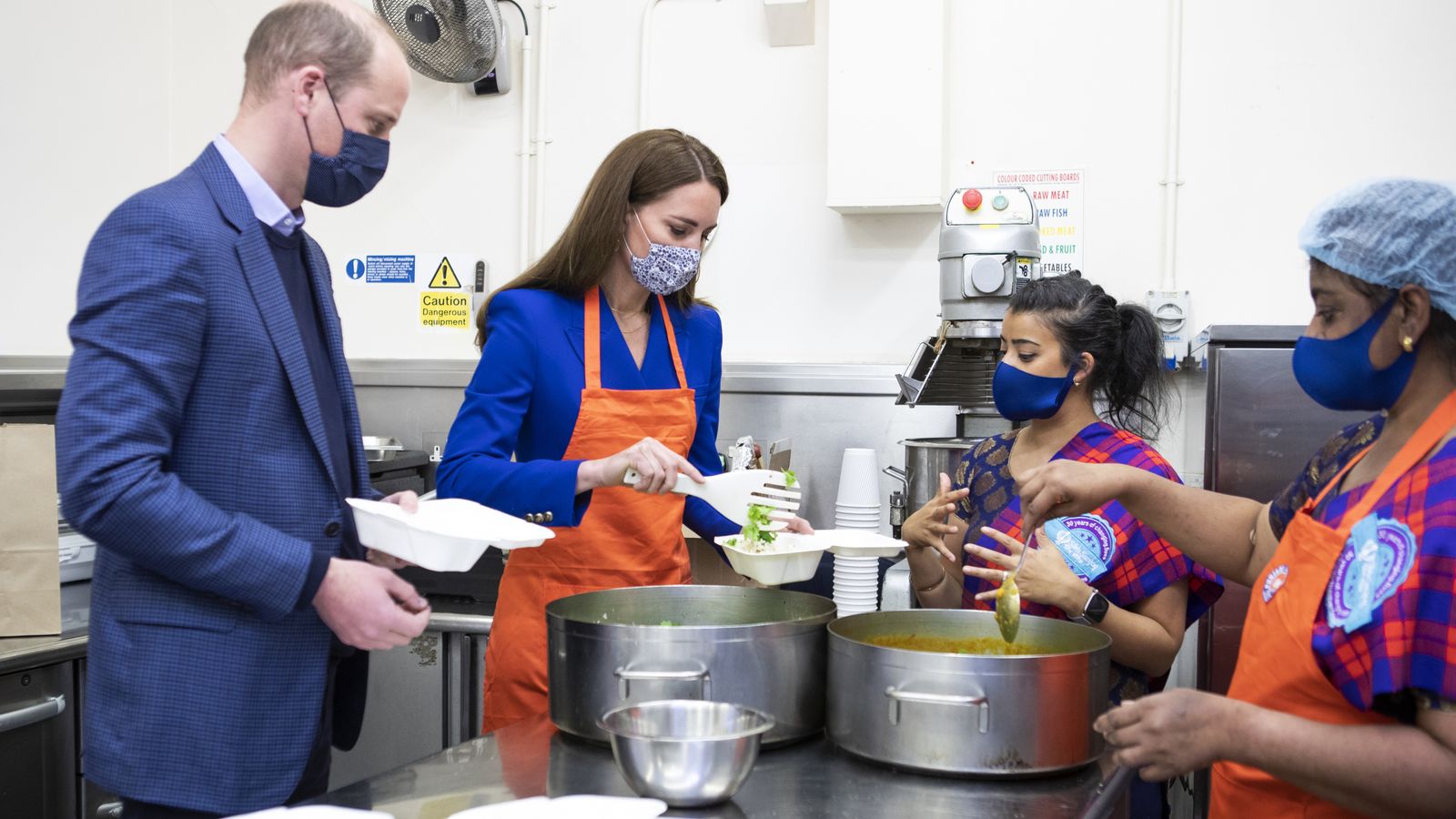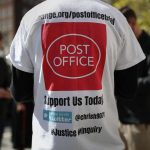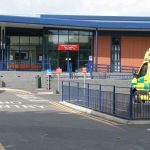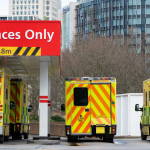The Duchess of Cambridge likes it spicy, her husband has revealed, as the couple discussed curry with a Sikh community group.
Prince William said that he was not a fan of picante dishes as the pair helped the Sikh Sanjog group in Edinburgh.
The duke and duchess tried their hands at making chapatis and dished out portions of curry into containers.
The future king was asked if he was a fan of the South Asian cuisine, to which he replied: “I love curry… not too spicy.”
Kate was asked if she made curries at home, and she said: “Yes, I love it.”
The prince added: “She likes a bit of spice… I’m not too good with spice.”
The Sikh Sanjog group was founded in 1989 to help women in the Sikh community integrate into Scottish society.
During lockdown it started providing curries twice a week to help disadvantaged people in the area.
William and Kate had been helping out during a cooking session at a kitchen in the Palace of Holyroodhouse.
Earlier in the day the pair had spoken to recovered addicts who were now trying to help those on the streets struggling with their own addiction and near-fatal overdoses.
The royals were at Turning Point Scotland‘s centre in the town of Coatbridge, where they spoke via video call to the Glasgow overdose response team about how it saved lives.
Prince William said the key turning point often comes “when somebody else [is] taking actual proper interest in your life”.
He added: “Of course, so many times people come and go, don’t they, when you’re looking for help, and you get sent to god knows how many different organisations, and you get passed to the next one.
“But what is crucial is how you capture that big net in one go that really matters, which is what you guys do here.”
Neil Richardson, chief executive of Turning Point Scotland, said a type of drug known as “street benzos” became more prominent during the pandemic.
He told the royals: “People were using pill presses, that were creating all sorts of cocktails of horribleness, and people were dying as a result. There were various episodes where you see spikes in deaths.”
The overdose response team is funded by the Drugs Deaths Taskforce, and was set up in December 2020.
Due to its success, there is a planned fast track rollout of services to other parts of Scotland.






















